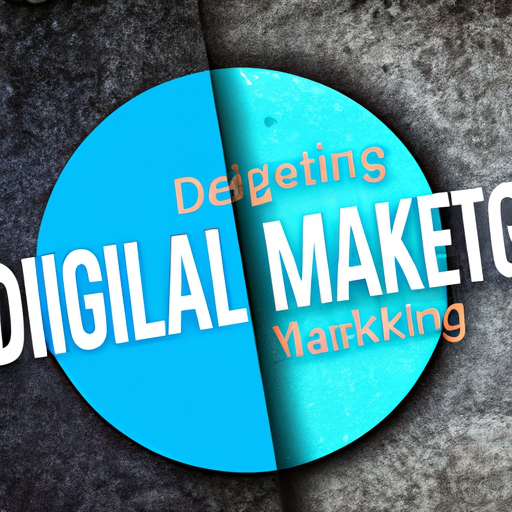Understanding The Difference Between Digital Marketing And Social Media
Digital marketing and social media are often used interchangeably, but they are not the same.
Many people confuse the two, thinking that social media is synonymous with digital marketing.
However, while they are related, they encompass different aspects of modern marketing strategies.
What Is Digital Marketing?
Digital marketing is an umbrella term that encompasses all online marketing efforts.
This includes search engine marketing (SEM), email campaigns, content creation, and even display advertising.
Anything that leverages electronic devices or the internet to promote products or services falls under digital marketing.
For instance, when a company uses Google Ads to target potential customers searching for specific keywords, they are employing search engine marketing.
This is a core component of digital marketing that aims to place ads in front of users actively looking for related information.
Components Of Digital Marketing
Several elements make up a comprehensive digital marketing strategy:
1. Search Engine Optimization (SEO): This involves optimizing website content to rank higher in search engine results.
2. Pay-Per-Click Advertising (PPC): These are paid ads that appear on search engines or other platforms.
3. Content Marketing: Creating valuable content to attract and engage an audience.
4. Email Marketing: Sending targeted emails to potential and existing customers.
5. Affiliate Marketing: Partnering with other businesses or influencers to promote your products.
6. Marketing Automation: Using software to automate repetitive tasks in your campaigns.
Each component plays a significant role in driving traffic, generating leads, and ultimately converting those leads into customers.
What Is Social Media Marketing?
Social media marketing is a subset of digital marketing focused specifically on social platforms like Facebook, Instagram, Twitter, LinkedIn, and Pinterest.
It involves creating content tailored for each platform to engage its unique audience.
For example, if you run an e-commerce store selling fitness gear, you might use Instagram’s visually-driven platform to showcase high-quality images of your products in action.
Conversely, you could use LinkedIn for more professional content aimed at industry experts.
The Role Of Engagement In Social Media Marketing
One key aspect of social media marketing is engagement:
1. Likes And Shares: Increasing visibility by encouraging people to like and share your posts.
2. Comments And Direct Messages: Building relationships through direct interaction with your audience.
3. User-Generated Content: Encouraging your followers to create content featuring your brand.
Engagement is crucial because it helps build a community around your brand and fosters customer loyalty.
The Overlap Between Digital Marketing And Social Media
While distinct entities, there’s a significant overlap between digital marketing and social media:
Both aim at driving traffic and generating leads but through different means.
Take the example of a company using Facebook Ads alongside Google PPC campaigns:
The Facebook Ads target users based on their interests and behaviors on the platform,
While Google PPC targets users actively searching for related keywords.
Thus both methods can complement each other within a broader digital strategy.
Integrated Strategies For Better Results
Combining both types can lead to more robust results:
1. Running a blog post campaign (part of content/digital) shared across various social platforms,
Amplifies reach while leveraging SEO benefits from the blog post itself.
2 Outbound email campaigns might include social share buttons encouraging recipients
To spread the word about exciting updates or promotions via their networks,
Marrying email’s direct approach with broader organic reach from shares/reposts/retweets etc.,
Having multiple touchpoints increases chances consumers will remember & trust brand – leading higher conversion rates overall,
Choosing The Right Approach For Your Business
Deciding whether focus more heavily on one versus another depends largely on goals/resources available:
For smaller businesses limited budgets/time investment necessary maintaining active presence multiple channels may find better ROI concentrating specific areas proving most effective them personally,
For instance niche BtoB providers might see stronger returns prioritizing well-targeted LinkedIn activity over broader consumer-focused Instagram initiatives,
Conversely larger brands greater resources disposal benefit pursuing integrated approach enabling them maximize opportunities across spectrum touchpoints
Ultimately regardless approach chosen it’s important regularly review performance metrics adjust accordingly ensure optimal outcomes being achieved long term basis
By understanding nuances differences between digital/social marketers develop clearer picture how best leverage full array tools available crafting successful comprehensive strategies tailored meet unique needs circumstances
By leveraging these insights & combining tactics creatively/enjoyably can enhance effectiveness campaigns dramatically ensuring business remains competitive ever-evolving landscape!

